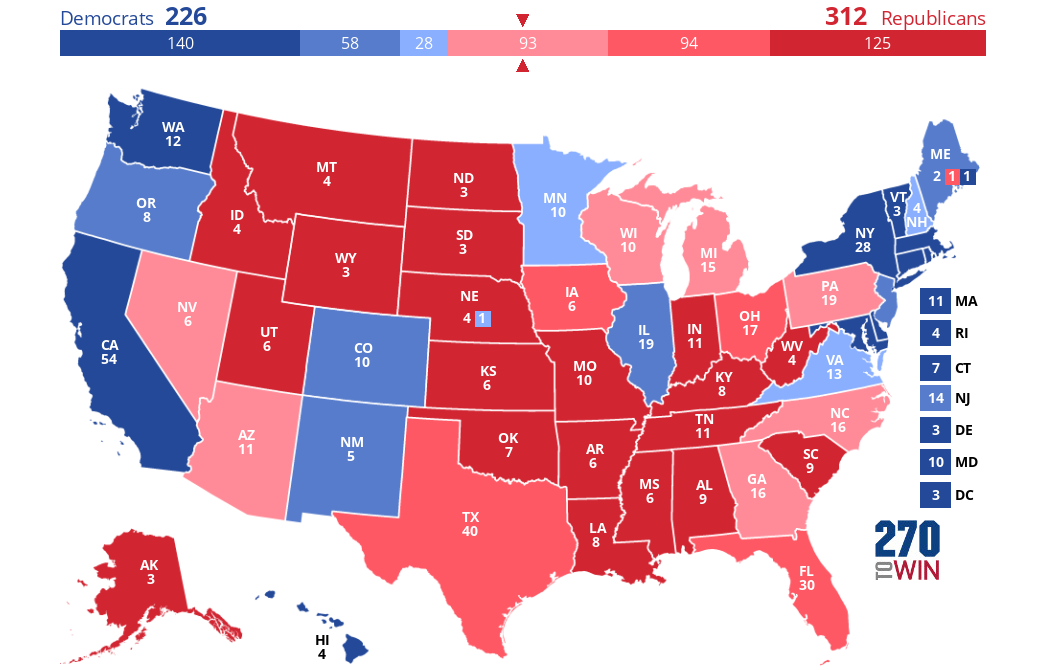This article first appeared on the Magnolia Tribune.
- A deep look at the national, swing state, and issue polling likely to define the 2024 race for president.
Delegates to the Democratic National Convention must still vote Vice President Kamala Harris in as the Party’s nominee for president, but barring intra-party drama, she will be former President Donald Trump’s opponent. Harris secured commitments from the necessary number of delegates this week, along with a bevy of high profile endorsements, including former President Barack Obama.
The analysis below examines national polling and swing state polling, before exploring the issue and dynamics that will guide campaigns through Election Day. Put on your scuba gear. It’s a deep dive.
National Presidential Polls
Early polling suggests President Joe Biden’s departure from the race and Harris ascendency has breathed new life into Democrats. The Hill’s average of 81 separate polls pitting Trump versus Harris puts Trump up 2.1 point, 47.8% to 45.7%.
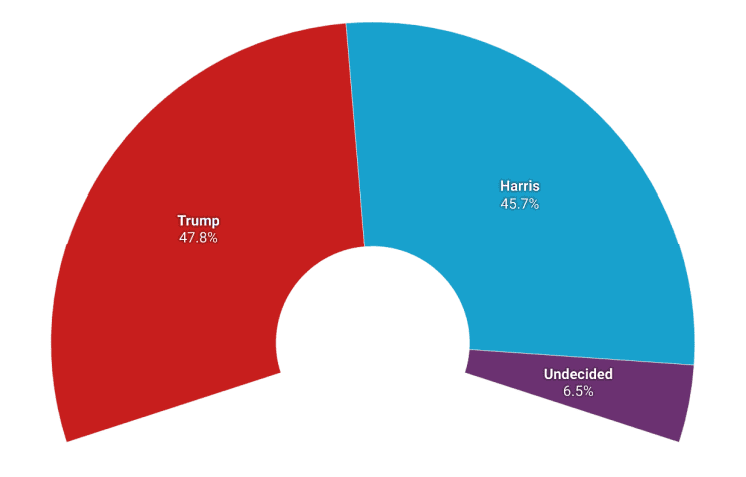

By contrast, The Hill’s average of 826 separate polls conducted between Trump and Biden had Trump up 3.3 points, 46.6% to 43.3%.
A few things of note in comparing the two sets of polling. Now that there is more certainty about the candidates, both Trump and Harris have seen an uptick in “locked in” support. Harris has closed the gap slightly. To some degree, the narrowing is to be expected. Many Democrats had written off winning the White House with Biden as their standard bearer. Harris brings new hope, and with it, new excitement.
Swing State Presidential Polls
National polls help in understanding public sentiment, but the race for the White House will be decided by a few percentage points of voters in a few states.
States like Ohio and Florida are no longer considered “swing states” and are firmly in the Republican camp. Trump has also succeeded in expanding the battleground map to places like Minnesota, Nevada, and Virginia.


Notably, there have been decidedly fewer Trump-Harris polls in individual swing states and many were taken prior to Biden dropping out of the race and Harris assuming the mantle.
Emerson College Polling ran polls this week in Arizona (Trump +5), Georgia (Trump +2), Michigan (Trump +1), Pennsylvania (Trump +2), and Wisconsin (tied) which showed the race tightening in those states.
Redfield and Wilton Strategies released polling today in Arizona (Trump +3), Georgia (Trump +5), Michigan (Trump +3), Minnesota (Harris +3), Nevada (Trump +2), North Carolina (Trump +3), Pennsylvania (Trump +4) and Wisconsin (Trump +1).
If Current Polls Hold, Trump Wins
For context, President Biden defeated former President Trump in Arizona, Georgia, Michigan, Minnesota, Nevada, Pennsylvania, Virginia and Wisconsin. It takes 270 electoral colleges votes to win the presidency. If the election were to follow current polling in the battleground states, Trump would win the White House with 312 electoral college votes.
Harris is currently considering vice president picks that include Arizona Senator Mark Kelly, Michigan Governor Gretchen Whitmer, Minnesota Governor Tim Walz, and Pennsylvania Governor Josh Shapiro. The homestate of her selection could positively impact the battleground map for her.
The Mood of a Country
Now, to dig deep we will look at two comprehensive polls conducted by YouGov this week, one for The Economist and one for Times/SAY24. These polls provide valuable insights into the mood of the country, the constituencies of the candidates, how Americans perceive their leadership abilities and the issues that will decide the election.
It makes sense to start with recognition that Americans are particularly dour about the direction of the nation. 69% of respondents in The Economist/YouGov poll said the country was headed in the wrong direction to just 20% who said it was on the right track.


Republicans lead the “Eeyore caucus” with 92% expressing disapproval, but they are not alone. 73% of independents say the nation’s on the wrong track. 41% of Democrats also believe we are heading the wrong direction.
The negative sentiment held across racial demographics, with White (74%), Hispanic (70%), and Black (50%) majorities all saying we’re on the wrong track. This kind of negative sentiment generally hurts the party in power.
“It’s the Economy, Stupid”
In 1992, Democratic operative James Carville famously quipped “it’s the economy, stupid,” in describing why Bill Clinton’s campaign would prevail over then-President George H.W. Bush.
Fast forward to 2024 and inflation and the economy are among the top issues identified by voters. They’re not happy.
In The Economist/YouGov Poll, only 25% of the country says the economy is either excellent (6%) or good (19%). 72% say it is fair (27%) to poor (45%).
52% think the economy is trending worse. It should be noted that the economy was arguably worse in 2022, when Republicans predicted a “Red Wave.” The Red Wave did not come.
Harris Digging Out of a Biden Hole
Despite glowing reviews from the punditry on President Joe Biden following his decision to drop out of the race, the American public is not impressed with his job performance.
Biden’s net job approval rating in The Economist/YouGov Poll was negative 19, with only 38% approving of the job he is doing as president. There was little improvement when it came to individual issues.


To compound Harris’ problem assuming the mantle from Biden, 54% of respondents in the Times/SAY24 Ooll expressed a belief that there had been a cover up of Biden’s health (30% said they did not believe there had been a cover up and the remainder was undecided). Among those who believed a cover up had occurred, 85% said Harris was involved in the cover up.


In the lead up to the June 27th debate between Biden and Trump, Harris regularly defended Biden’s mental acuity. She told Good Morning America in February that “we have a very bold and vibrant president in Joe Biden,” and insisted “our president is in good shape, in good health, and is ready to lead in our second term.”
Harris & Trump Constituencies
The Economist/YouGov Poll looked at how various demographic constituencies are lining up behind Harris and Trump.
Show Me the Money: Trump has an 8 point lead with people earning less than $50k & a 6 point lead with people earning between $50k-100k. Harris leads by 3 points with $100k+ earners.
The reputation of the Democrats as the “working man’s party” and Republicans as “country club” seems to have inverted. Hard to tell if this is a byproduct of the GOPs messaging shift toward populist economic policies or if the messaging shift followed the support. Chicken or egg.
Battle of the Sexes: Trump leads by 8 points with men. For all of the chatter about the seismic shift of women away from conservatism/Republicans, Harris only leads by 2 points with women. To be successful in overtaking Trump, she will have to build this margin. Look for abortion and attacks painting both Trump and his selection for vice president, J.D. Vance (R-OH), as sexists to feature prominently in messaging on behalf of Harris.
Trump lost states like Georgia in 2020 largely because of an outflow of suburban women. It will be interesting to see how the 2024 campaign balances male-centric messaging (e.g. Hulk Hogan and UFC’s Dana White at the RNC Convention) with concerted outreach efforts to women.
Racial Lines: Harris has strong leads with both Black and Hispanic voters, but Trump’s numbers with both minority populations have him outperforming most Republican candidates in modern history.
Trump presently draws 14% of Black voters. If he were to maintain this level of support, it would be the highest Black vote tally for a Republican presidential candidate since 1960 when Richard Nixon drew nearly 30% of the Black population’s vote. Trump presently draws 38% of Hispanic voters, the highest level since George W. Bush pulled down nearly 40% in 2004.
Less than a percent of African Americans voted for Republican John McCain in 2008 when he ran against former President Obama. Harris will attempt to catch Obama’s lightning in the bottle, but at a minimum, will need to cut into Trump’s current minority support to have a chance.
Declare Your Independents: Trump leads with independents by 9 points. If he maintains this lead, he will very likely be elected President.
Is Support Firm or Soft?
For the most part, votes are locked in according to The Economist/YouGov Poll. 91% of Harris supporters say they will not change their votes, with just 9% saying they may. Trump’s support is even more set, by a 95-5% margin.
With support locked down, the test for both campaigns becomes how to pump up enthusiasm, drive their turnout, and toss a wet blanket on their opponent’s turnout.
54% of third-party candidate supporters say they may change their vote. This is the wild card in the deck. A lot of the third-party candidates’ current supporters will end up in an R or D camp by the end of the election. How do Robert F. Kennedy, Jr.’s voters break if they decide to go mainstream?
For Love or Hate
82% of Trump voters say they are mostly motivated to support him, versus being motivated by opposition to Harris. The same cannot be said for Harris voters. 55% of her supporters say they are primarily motivated to oppose Trump, versus being in it for Harris.
While this could change as people become more acquainted with Harris, the race largely looks like a referendum on Trump. He inspires fealty and hatred all at once.
The Economist/YouGov Poll put Trump’s favorability rating at negative 10 (43-53%) and Harris’ favorability rating at negative 9 (42-51%), which is to say that the majority of Americans are not thrilled with either candidate. Trump’s selection for vice president, Senator J.D. Vance (R-OH), also begins under water on favorability (34-42%).
Trending Liberal?
In the Times/SAY24 Poll, 69% perceive Kamala Harris as being either very liberal (41%) or liberal (28%). By comparison, 61% believed Biden to be either very liberal (35%) or liberal (26%).
It will be interesting to see the trade-off between the gain in perceived competency to serve versus the perceived move left on the ideological spectrum.
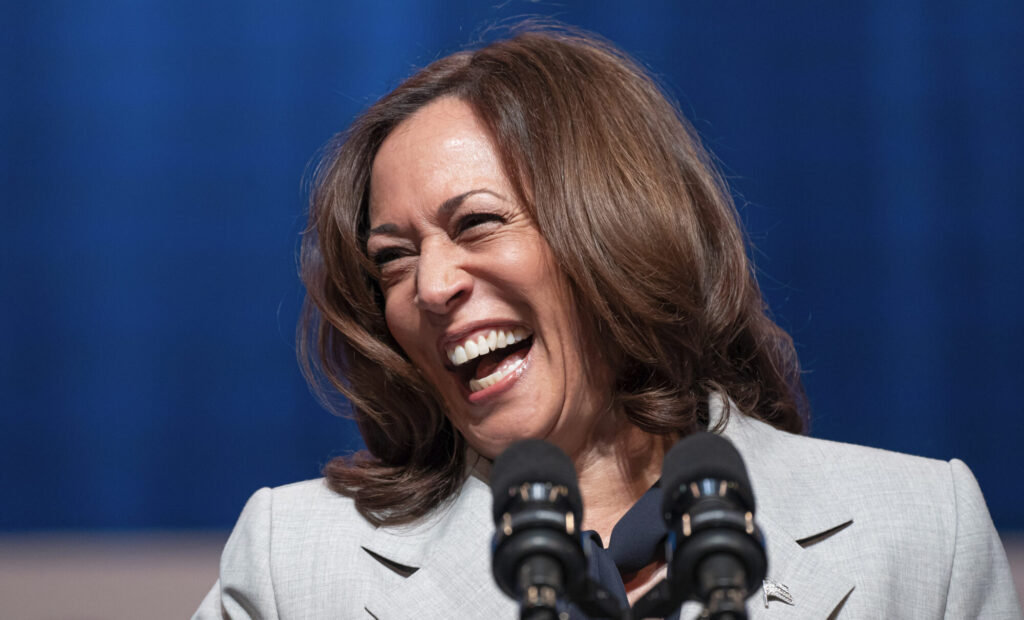

During her time in the U.S. Senate, Harris was rated as the most liberal senator in the chamber by the non-partisan accountability organization GovTrack. GovTrack removed that information from its website this week, pointing to revised rankings that put Harris as the second most left-leaning senator behind Vermont Independent Bernie Sanders.
Expect the Trump campaign to focus heavily on Harris’ pre-Vice President record, which included being a signatory on the Green New Deal, co-sponsoring “climate equity” legislation with Rep. Alexandria Ocasio-Cortez, advocating for a ban on fracking, and support for expansive new welfare programs, higher taxes, and taxpayer-funded abortions.
Mr. Personality?
Respondents in the Times/SAY24 Poll think Trump is more authentic than Harris.
46% said Trump believes what he says more than just saying what people want to hear (32%). By contrast, 41% said Harris says what people want to hear more than saying what she actually believes (30%).
Of course, if you think someone believes what they are saying, and you don’t like what they are saying, authenticity could cut against the candidate.


Respondents also see Trump as the stronger leader. 61% said he was strong, versus 39% who see him as a weak leader. This means that a sizeable portion of Democrats even see Trump as strong.
49% said Harris is a strong leader, versus 51% who see her as weak.
The Issues that Matter:
The Economist/YouGov Poll went through a lengthy list of issues to determine how important they were to voters. Each issue was tested individually. Additionally, respondents were asked to pick the “most important” issue from the list. The chart below shows the top 5 issues selected as “most important.”


Notably, while abortion ranked fifth on the “most” important issue list, only 72% of respondents said it was either very important or somewhat important, the lowest score of over a dozen issues tested. This suggest that the people who care about abortion really care — enough to name it their number one issue — but that its breadth is not as wide as other issues.
Who Do Voters Trust on the Issues?
According to the Times/SAY24 Poll, voters trust former President Trump by wide margins on the economy, immigration, foreign policy, and addressing crime. Voters trust Vice President Harris by a wide margin on abortion and by a much smaller margin on Supreme Court appointments.


The polling helps explain why Trump focuses so much energy on the economy, inflation, and immigration, and why Harris will try to distance herself as much as possible from inflation and immigration.
When she ran for president in 2020, Harris voiced support for decriminalizing illegal immigration into the United States and for providing taxpayer-funded government healthcare to migrants. In a 2018 Senate hearing, she drew parallels between ICE agents and the Ku Klux Klan. It will be interesting to see if she pivots from positions like these, which may be viewed as extreme by many Americans.
RELATED: ‘Border Czar’ or not ‘Border Czar’?
The polling on who Americans trust with key issues also gives good insight into why abortion and SCOTUS are two of the central issues being pushed by Harris and Biden right now.
The two issues are somewhat tied together. SCOTUS has been turned into a target in large part because of the Dobbs decision overturning Roe v. Wade. For all of the energy trained on delegitimizing the Supreme Court, a current 2-point advantage may suggests that attacking the Court itself is not a vote catalyst.
Abortion, on the other hand, is one of the few spots where Democrats have a clear advantage with voters. Trump has tried to insulate the Republican Party platform from abortion, has come out in opposition to a federal ban on abortion, and has made clear he will not interfere with IVF.
Past Performance is No Indicator of Future Success
Polls are a snapshot in time. While the election is just on the horizon, three plus months is an eternity in politics. There will be October surprises, and likely some August and September surprises, too. But the current polls give a pretty good indicator of which states, dynamics, and issues will be important in determining a winner.
One potential disruptor on the horizon is Trump’s September sentencing date in the Manhattan falsification of business records case. These charges typically do not draw prison time for first time offenders — in fact, they are typically misdemeanors. But Judge Juan Merchan could theoretically sentence Trump to more than 130 years in prison (34 counts at a maximum of 4 years per count). The potential for this chaos seems to be off everyone’s radars for some reason, but could create both severe legal and political headaches for Trump.


Another potential disruptor centers around two foreign conflicts. Trump has some difficulty with the war in Ukraine, while Harris is walking a tightrope on the war in Gaza.
59% of respondents in the Times/SAY24 Poll sympathize with Ukraine, 27% with neither nation, and only 3% with Russia. Even among locked in Trump voters, considerably more sympathy resides with Ukraine (47% to 6% who side with Russia). Even so, a plurality of voters favor decreasing aid to Ukraine (34%), with only 21% voicing support for increased aid and 24% saying to keep it the same. 55% of Trump supporters want to decrease aid.
This presents a messaging tight wire for Trump. The majority of people think Russia is the big baddie. If he defends Putin, he puts himself out of touch even with his own voters. He can, though, make the case that it’s not our war to fight or fund.
But the Ukrainian-Russian conflict is taking a back seat in the American consciousness to the war in the Middle East. Sympathies between Israel and Gaza are more mixed and fairly partisan. Trump’s base overwhelmingly supports Israel. But Harris’ base is more divided, with 12% supporting Israel, 38% saying they support both equally, and 34% siding with the Palestinians.
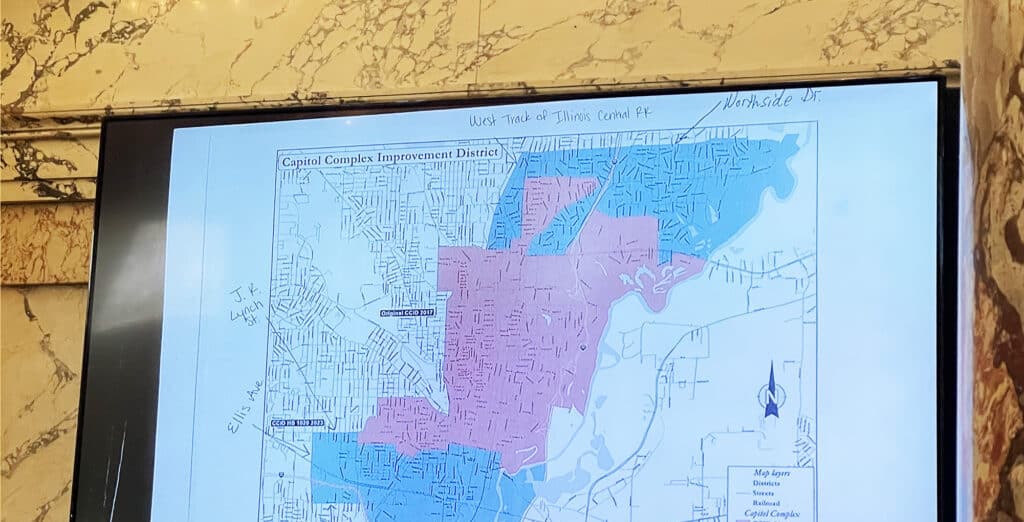
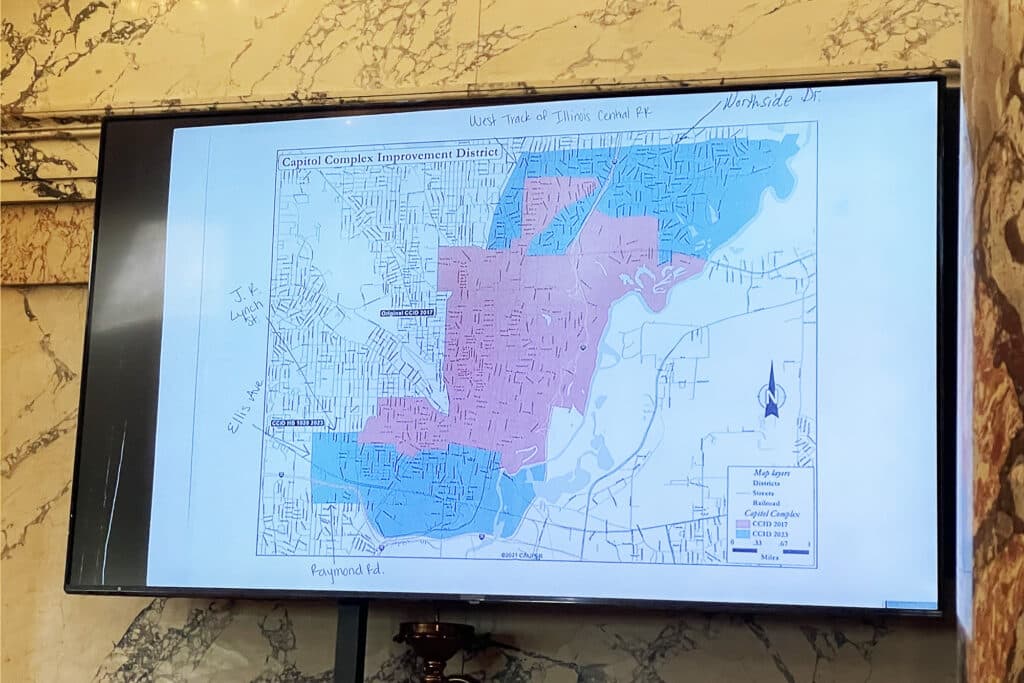
Protests in Union Square during as Israeli Prime Minister Benjamin Netanyahu spoke before Congress highlights the potential powder keg. American flags were lowered from three flagpoles and burned, while Palestinian flags were hoisted. Statues in the vicinity were graffitied with phrases like “Hamas is coming” and “all Zionists are bastards.” One man held a sign that read “Allah is gathering all the Zionist for the ‘Final Solution,’” a reference to Adolph Hitler’s plan to eradicate Jews.
Should college resume in the fall with the types of campus protests that closed the spring semester, Harris may be forced to take positions that will divide her base of support or diminish enthusiasm among young voters.
This article first appeared on the Magnolia Tribune and is republished here under a Creative Commons license.
Read original article by clicking here.


